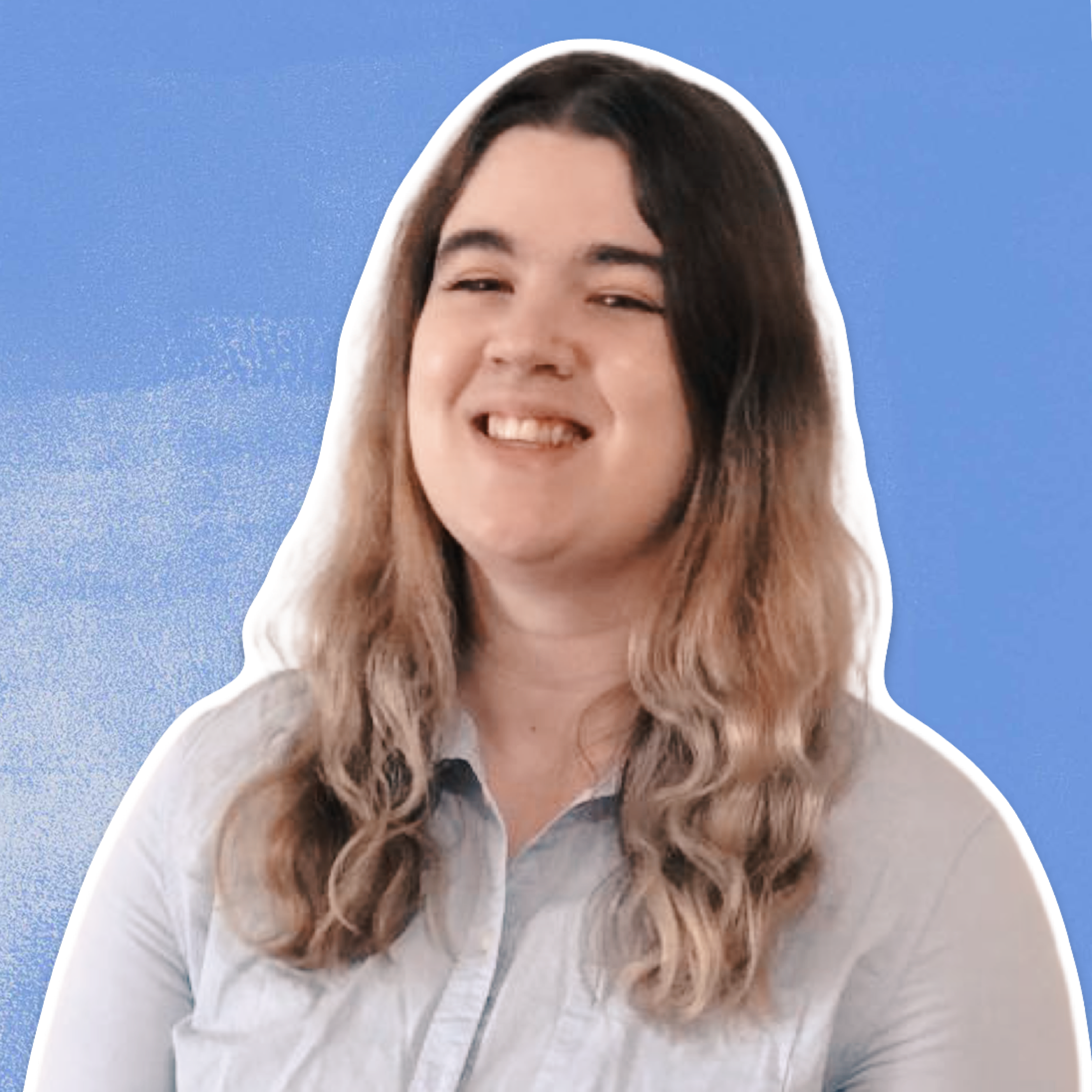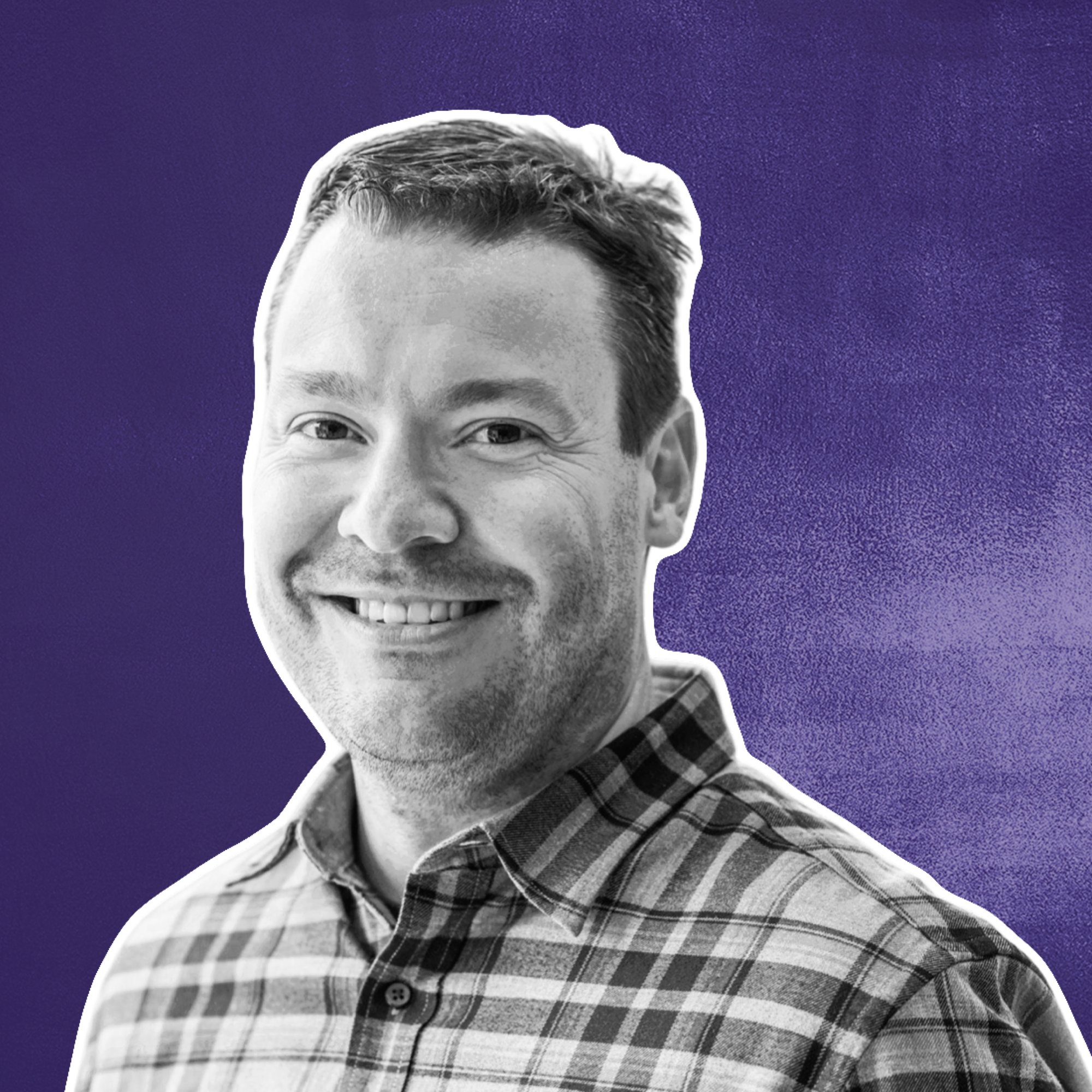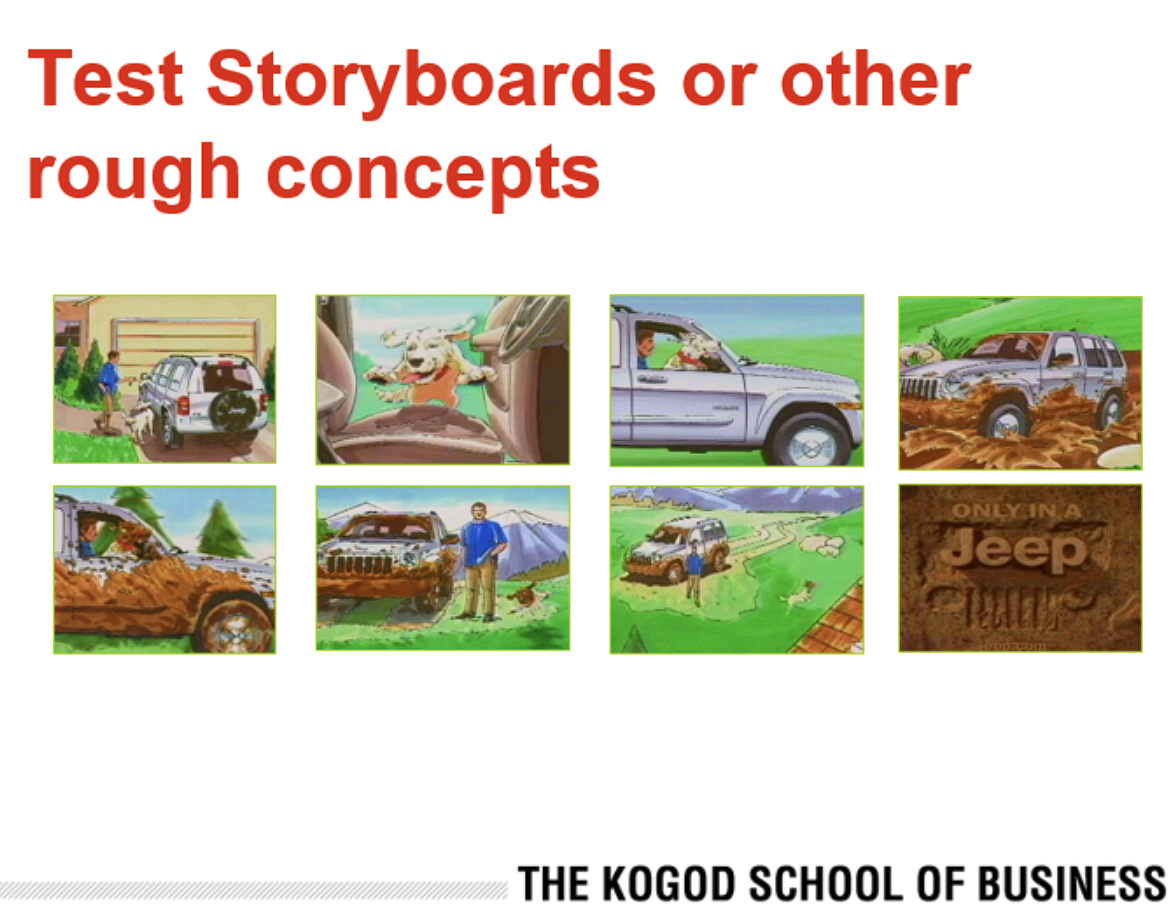
Darby Joyce
Content Marketing Coordinator
The Kogod School of Business hires faculty practitioners with real experience in business settings. Students learn from high-level mentors in their chosen fields, from marketing to consulting, entrepreneurship, and beyond. Professors draw on their extensive experiences to prepare students for the reality of their professional journeys post-graduation. Kogod professor of marketing Michael Clayton finds that his previous work in advertising is an asset in the classroom—students are fascinated by his stories.
“I think students really love hearing from professors about their personal experiences,” Clayton said. “It helps them recognize that things are usually a bit messier than textbooks make them out to be and gives them some of those real-world challenges you face.”
After finishing his bachelor's degree at Miami University, Clayton’s work with ad agencies began in the late nineties. He moved to Detroit, well known for its role in the automotive industry, and got to work on marketing big names like Chevrolet, Dodge, and Michelin. While in Michigan, he also pursued a master’s degree in advertising, where he received his first exposure to the classroom setting.
“One of my graduate instructors asked me to come down to East Lansing and talk to her undergrad students about advertising,” he recalled. “I saw how wide-eyed and optimistic they all were about wanting to get into the business, and that’s when this light bulb went off for me that I really enjoyed what I did.”
Clayton kept that moment in mind. Seeking a way to maintain a better work-life balance than advertising could provide while still sharing his passion for the field, he earned a PhD in mass communication from the University of Florida before shifting gears into academia. Along the way, he found that he enjoyed teaching, so much so that he now conducts pedagogy research to further develop higher education methods.
“When you get your doctorate, very little time is spent teaching you how to teach—you’re learning to be an expert in your respective field,” Clayton said. “Given that no one ever really teaches you about designing a syllabus or an assignment, I’ve really enjoyed having the opportunity to share my own experiences with colleagues across different universities and to learn from their experiences.”
At Kogod, Clayton is the course coordinator for Principles of Marketing (MKTG300), where students learn about decision making in marketing and practice business writing. Clayton’s pedagogical research has significantly changed how Kogod approaches the writing component; he found that while the course was writing intensive, it didn’t necessarily enable students to develop writing skills. “When I joined Kogod eleven years ago, the course included a semester-long paper. Now, students have the opportunity to practice what they’re being taught, collect feedback on their writing, and go through the editing process,” he explained.
We try to emphasize that writing is a process and that none of us are perfect writers our first time.”

Michael Clayton
Professor of Marketing, Kogod School of Business
Marketing is just as much about communicating ideas as it is about having them, and Clayton sets his students up for success by teaching both.
He also prioritizes readying students for the inevitable changes they’ll face in their careers. Clayton has spent over twenty years in marketing and over ten teaching it, so he’s seen firsthand how digital marketing has caused the entire field to evolve. “In the late nineties, many folks in business school who didn’t love numbers went with marketing since it was the least numbers-oriented path. But that’s no longer true,” he said. “We’re surrounded by data all the time now, and when I take my students to different agencies, we hear continuously that every employee needs to be a data scientist.” Though marketing students don’t necessarily need to develop their own systems and models, they do need to recognize different types of data and how they can use it in their daily lives. Through coursework and real-world examples, Clayton allows students to get comfortable with data early to enter the workforce with that knowledge in their toolkit.
As for Clayton himself, he still has plenty of things to learn about changes in the marketing world. Besides his continued work in pedagogy, he’s also interested in how people engage with the wide variety of products available to them. “In certain categories, there are consumers who exhibit quite a bit of variety-seeking behavior—it’s not that they haven’t liked products they’ve used in the past, but they get some benefit and value out of trying new things and having different experiences,” he explained. “I’m interested in experimenting in that area to see how people seek variety.”
Meanwhile, he’ll continue to bring his research and advertising experience to the classroom. Clayton often brings rough drafts from previous projects into the classroom to allow students to gain an understanding of the development process.

A set of advertisement storyboards used by Kogod professor Michael Clayton in his classrooms.
“They can see how we went from a storyboard or an animatic, through the market research, and finally to the produced commercial,” he said. “Behind every ad is a story of how you got to that final point.” Once they have that perspective of the whole picture, Kogod students are well-equipped to enter the marketing world with an appreciation for everything that goes into it.
